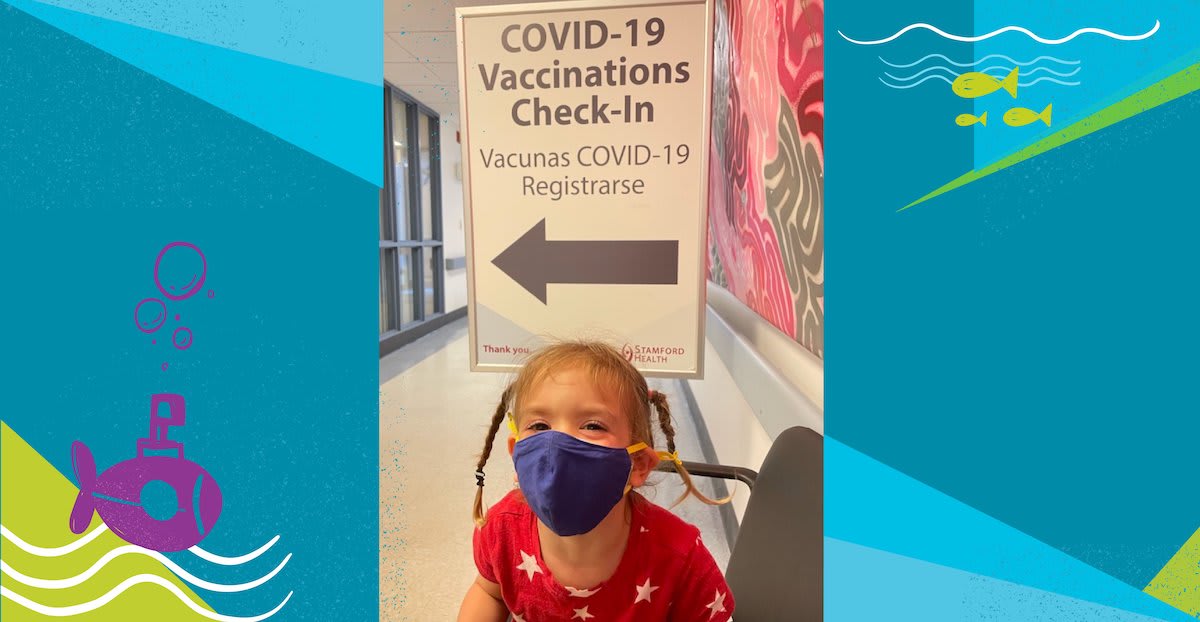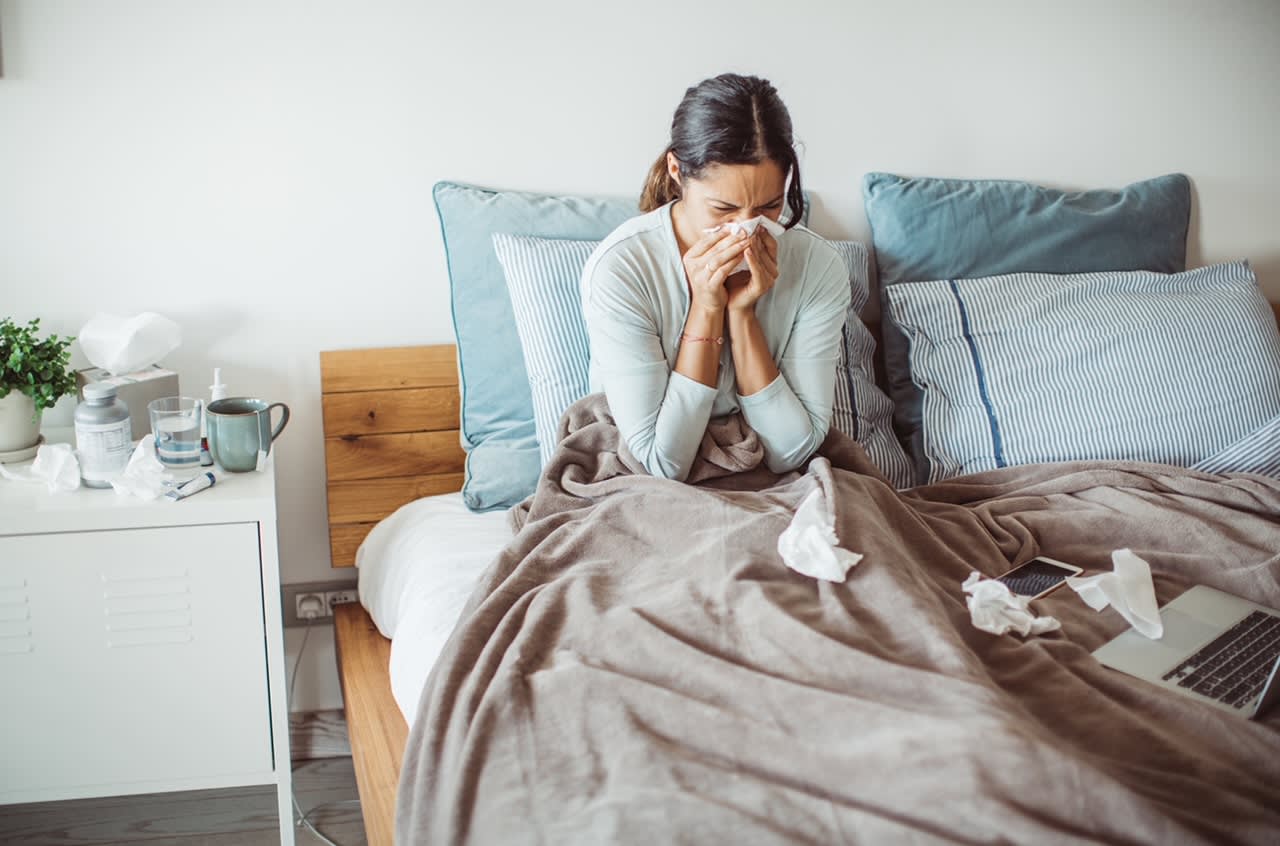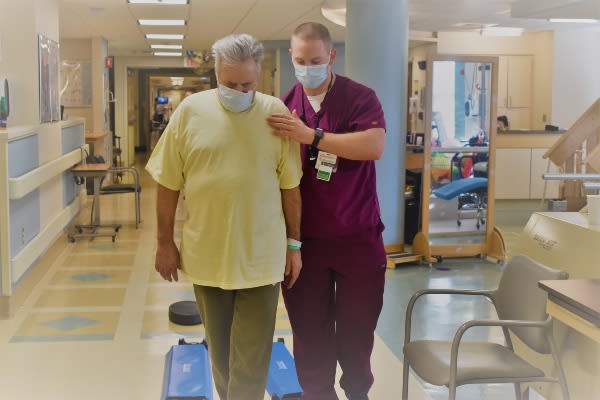5 Remote-Working Health Issues and Their "Prescriptions"
Published: April 26, 2021l
By Lisa Chang Schlussel, DO, Family Medicine
Looking for a Primary Care Physician (PCP)?
Let us help you find the right doctor for your needs.
Before the COVID-19 pandemic, the ability to work from home long-term or permanently was a dream for many. Now that it has become a reality for those whose careers make it possible, you may be realizing there are some tradeoffs.
Dr. Lisa Chang Schlussel , Stamford Health Medical Group primary care physician, breaks down some of the most common and not-so-common health issues that come with working remotely, and how to treat, or avoid them all together.
1. Overall anxiety and stress
The problem:
It all seems like too much sometimes—the stakes are high, you feel pressured and times are stressful right now. Laundry, housework and other at-home responsibilities have also put a whole new meaning to multi-tasking on top of it all. How can you cope?
The prescription:
Try to incorporate exercise throughout the day, whether you can escape to another room in your home to do so or head outside for a brief walk. Aim for 30 minutes of exercise a day, even if that consists of 3, 10-minute walks.
2. Tension in upper back and neck
The problem:
Everything hurts, or feels really stiff or tight—maybe this is because you’ve made a desk out of your kitchen table, or aren’t sitting in your usual ergonomic office chair. Either way, you’re probably wondering what you can do to take better care of your neck and back while working from home.
The prescription:
It’s time to improve your work-station! Think: ergonomics. Consider looking into a standing desk, or adjust the height of your computer. Avoid working in a hunched-over position whenever possible and definitely don’t work from the bed or the couch, however comfortable they might seem in the short term.
3. Emotional eating or drinking
The problem:
It becomes easy to crave foods classified as “junk” or calorie-dense, especially when you are facing a few potential stressful factors at home. Maybe you’re in a constant rush to eat because you’re caring for a child while working full-time, or because you can’t seem to find the time to eat mindfully in between deadlines
Some people have also increased their alcohol intake during these difficult times. Excessive drinking (even if it does not qualify as binge drinking or alcoholism) can affect your health in many ways including increased calorie intake, increased anxiety the next day, poor sleep quality, chronic dehydration and much more.
The prescription:
Turning to food seems comforting, but it’s important to take care to nourish your body with the right stuff to avoid unnecessary weight gain. Eat a healthy, well-balanced diet. My personal favorite is the Mediterranean diet because it consists of a variety of delicious foods that help fight inflammation.
When it comes to drinking alcohol, a good rule of thumb is to limit your drinking to every other day and no more than two beverages at a time. If you are concerned about excessive drinking and think you need help, please contact the Substance Abuse and Mental Health Services Administration (SAMHSA’s) National Helpline, 1.800.662.HELP (4357).
4. Overdoing it
The problem:
The concept of 9-5 is out the window, and all boundaries and lines are blurred. You’re home constantly, so you may find yourself also working constantly and burning yourself out in the process.
The prescription:
Pretend you’re at the office. It may sound silly, but it’s actually a helpful tactic some of my patients swear by. Dress in office attire, have meals at the same time and try your best to stick to your usual pre-pandemic routine.
I cannot stress enough the importance of committing to 1-2 hours a day (at the very least!) of technology-free time. This may mean deciding to turn off your work phone after your daily obligations are fulfilled, or dedicating an hour before bedtime to indulge in something that doesn’t involve a screen such as a hot bath or a light yoga workout.
5. Isolation and loneliness
The problem:
You may live alone, or you may be constantly “on top of” other household members. Either way, it’s very likely this pandemic is making you feel lonely. You are certainly not alone in that feeling, if it’s any consolation.
The prescription:
Get creative with socializing! Why not set up a virtual get-together with friends or family?
I am also encouraging my patients to strongly consider the COVID-19 vaccine. While we are not out of the woods yet with COVID-19 in Connecticut, the vaccine offers powerful protection against the virus. Being in the company of vaccinated loved ones will help make socialization a (safer) reality. If you have any questions about the COVID-19 vaccine, please do not hesitate to ask your doctor—that’s what they’re there for.
As a physician, it is also my job to remind my patients to practice the 4 Ws, always: Wash your hands, Wear a mask, Wipe down surfaces, and Watch your distance.
A few helpful reminders:
- If you don’t have a doctor, Stamford Health makes finding the right one easier than ever.
- Stamford Health offers virtual care options, too. Learn how you can connect, virtually, with a doctor who meets your needs.
- If you haven’t been to your doctor in awhile, it’s time to schedule your annual physical. Here are some ways to make the most of your yearly check-up with your doctor.
Featured Expert/ Author





































